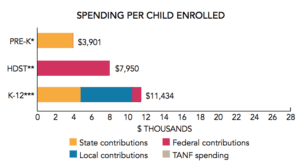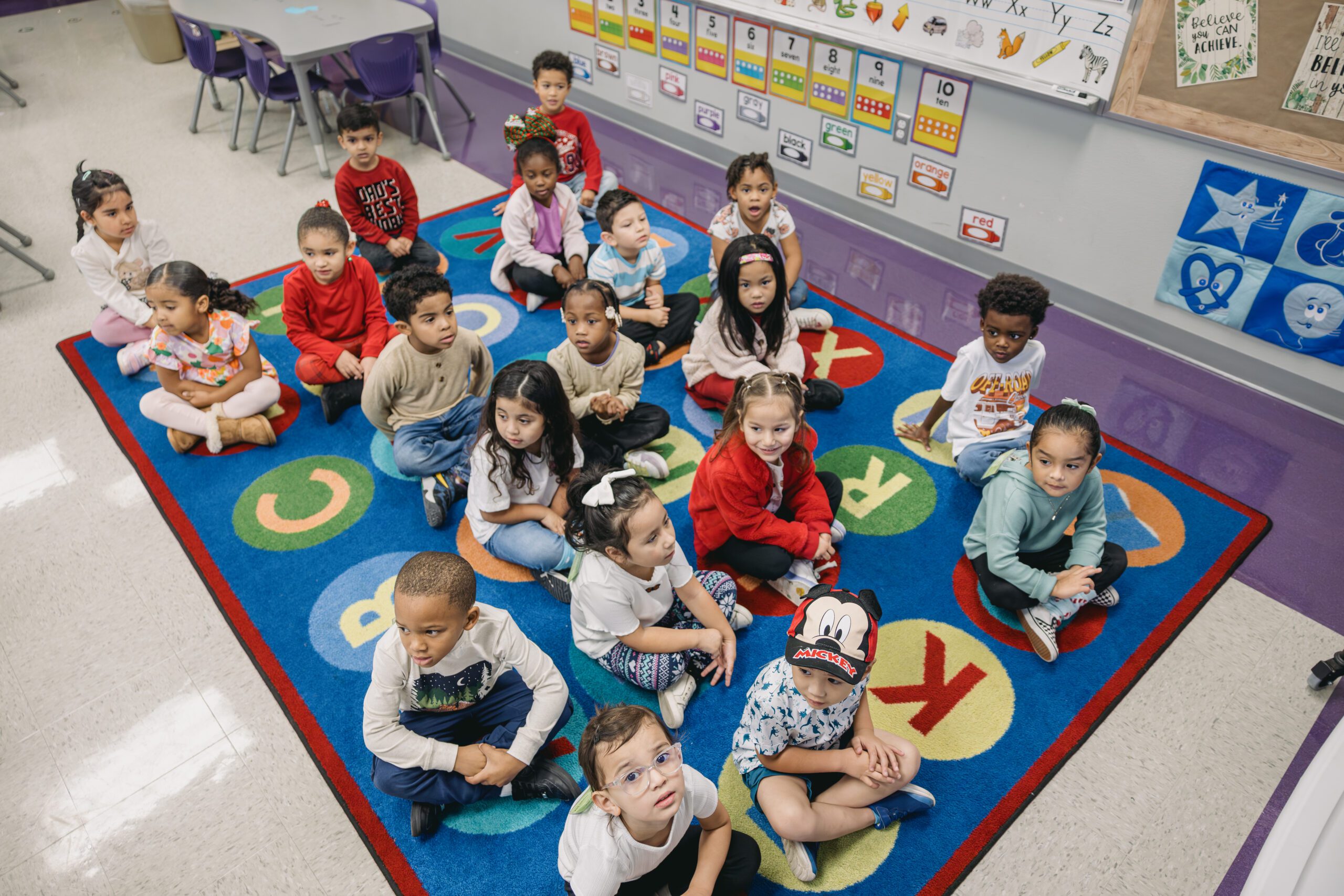
categories
Texas Again Fails to Realize Pre-K’s Potential

April 18, 2018
Report shows statewide support inadequate and inconsistent
 Texas met only four of 10 benchmarks for quality and dropped two places relative to other states in pre-K investments in 2016-17, according to a State of Preschool report released today by the National Institute for Early Education Research (NIEER). Texas ranked 28th in state pre-k spending overall — down from 26th in 2015-16. State pre-k funding declined by about $45 million or five percent according to the report.
Texas met only four of 10 benchmarks for quality and dropped two places relative to other states in pre-K investments in 2016-17, according to a State of Preschool report released today by the National Institute for Early Education Research (NIEER). Texas ranked 28th in state pre-k spending overall — down from 26th in 2015-16. State pre-k funding declined by about $45 million or five percent according to the report.
“The report reflects what we’ve witnessed for years — inconsistent and declining support for a program proven through research and supported by local school districts to benefit students,” said David Anderson, Raise Your Hand Texas policy counsel. “Investing in full-day, high-quality pre-k statewide boosts student achievement, has long-term impacts on educational attainment, and pays other dividends that far outweigh the costs.”
Texas school districts see such value in pre-k and continue to invest in expanding it despite lack of state support. Pre-k enrollment grew to nearly 225,000 students in 2016-17. Nearly 40 percent of these students are English Language Learners, requiring bilingual or Dual Language programs. NIEER Senior Co-Director Steven Barnett of the Rutgers University-based institute noted Texas is one of only three states requiring lead teachers serving English language learners to have a bilingual certification.
“Texas is setting the bar for supporting young Dual Language Learners but needs to increase investment in high quality to enhance outcomes for all children,” Barnett said.


